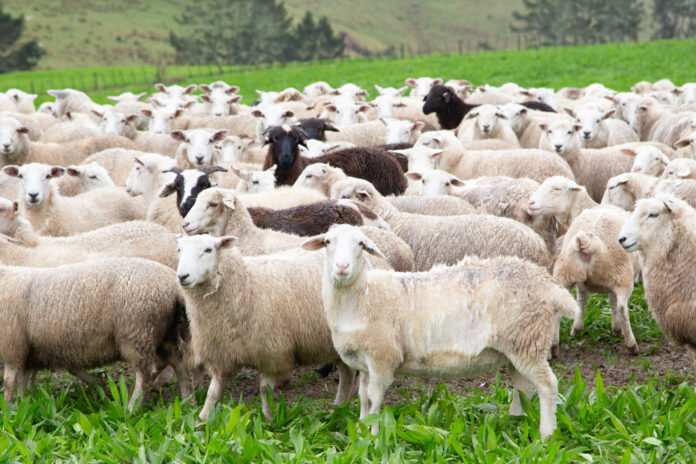Sheep with finer wool, greater tolerance for hot weather, top meat quality traits, and lower methane emissions – that’s the vision for Pāmu and partners who are working on sheep genetic advances with potentially huge benefits for Aotearoa New Zealand.
Pāmu (Landcorp Farming Ltd), the Ministry for Primary Industries (MPI) and Focus Genetics, a Pāmu subsidiary, with support from AgResearch, have joined forces on the innovative ‘Sheep of the Future’ programme.
The vision includes finer wool genetics (20-25 micron) that can be farmed beyond the arid areas that have traditionally been the home for Merino sheep, advances in strong wool breeds to increase disease tolerance, low-input traits to make farming less costly, continued breeding selection for animal growth and meat quality traits, and for rumen function with lower levels of methane emission.
“This groundbreaking seven-year initiative aims to transform sheep-based production systems. It will lower production costs and enhance farming businesses’ viability while contributing to New Zealand’s environmental and climate obligations,” said Pāmu CEO, Mark Leslie.
Programme Manager, Natalie Pickering from Focus Genetics claims climate change is likely to have a marked impact on farms producing wool and red meat in New Zealand.
“Genetics provides an opportunity to select animals that are better adapted to the changing environment through disease and heat tolerance while maintaining productive performance and lowering emissions.”
The project, partially funded through the Sustainable Food and Fibre Futures fund, is expected to run until 2029. The collaboration sees an injection of $10.5 million which will enable benchmarking, breed comparisons, research on new traits, and breeding programmes to develop fine-wool and no-wool sheep in New Zealand.
At Pāmu farm Aratiatia near Taupō, the team is working with a fine-wool breeding flock alongside a control Romney line. Measurements for production, reproduction, survival, disease, and fine-wool attributes are being conducted, along with environmental assessments. The objective is to identify fine-wool attributes suitable for a temperate environment.
“Working with Dr Tricia Johnson, Team Leader Animal Genomics at AgResearch, we saw an opportunity to generate a resource to enable us to investigate the genetic variation in the no-wool and fine-wool breeds. AgResearch has done great work on methane, residual feed intake and genomic selection for the New Zealand sheep industry and we can leverage this work,” said Ms Pickering.
The programme also includes a feasibility study led by AgResearch’s Dr Kathryn McRae, who will explore immune competence in New Zealand sheep. Immune competence is the ability of the animal to mount a healthy immune response following exposure to bacterial or viral infection. The study aims to define a measurement tool for immune competence that can be incorporated into breeding programmes.
Part of the project includes producing sheep for sub-tropical areas with a focus on meat production. The team has established a no-wool breeding flock at Pāmu farm Kapiro in Kerikeri, along with a control Romney line, to capture data on traits around production, reproduction, survival, disease, and no-wool attributes. Researchers will also take emissions-related environmental measurements, including residual feed intake and methane outputs.
Pāmu Head of Ventures, Jim Inglis says the project has taken three years of planning and preparation.
“It’s great to get to this next stage and be able to develop novel traits for the benefit of all breeders in New Zealand,” he said.
“The fine-wool flocks at Aratiatia and the no-wool breeding programmes at Kapiro and have now undergone multiple mating cycles. We have good relationships with breeders across New Zealand and internationally which have facilitated their establishment.
“Various breeds have been integrated into the programmes, adding genetic diversity, and expanding the scope of the research.”
The data generated from this work will flow through New Zealand’s national sheep evaluation programme NProve, managed by Beef + Lamb NZ, and will be available to all farmers.
Mr Inglis said the traits measured will also be valuable for strong wool breeders looking to make strong wool farming more profitable and sustainable, and that the team are looking forward to holding open days to discuss the work being done, and how it will fit into farm system changes.
“The programme demonstrates the collective effort of industry stakeholders and researchers committed to shaping the future of sheep-based production systems in New Zealand,” he said.



